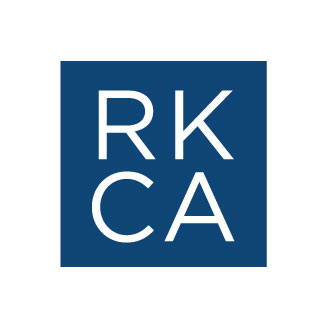When looking at an exit even for your business, it is important to understand the different types of potential buyers that can encountered in a sale process. A thorough sell-side M&A process identifies a multitude of both financial and strategic buyers. These different buyer types all have different approaches in negotiating and structuring a transaction. Prior to exploring an exit event, a seller should familiarize themselves with six of the most common types of buyers, and evaluate what characteristics are desirable for existing ownership.
Strategic Buyers
Strategic buyers are independent companies in the same or similar industry as the companies they seek to acquire. A strategic buyer’s goal in an acquisition is to absorb the operations of the target company to add scale or complement its existing operations. A strategic acquirer first identifies the synergies that exist between its core operations and those of the target – as a result strategics can pay a premium relative to other buyer types due to their ability to “capture” identified synergies. However, ownership should be aware that “capturing” synergies may come at the cost of a reduction of existing personnel, loss of vendor relationships, and other major changes to legacy operations.
Ownership Considerations: Strategic Buyer Pros & Cons
(+) Due to synergies, ability to pay a premium for target company
(+) High degree of familiarity/expertise in the target company’s industry
(-) Capturing synergies carries a high likelihood of personnel reduction
(-) Potential for dissolution of legacy brand
(-) Unlikely to allow ongoing equity participation for target company ownership
Private Equity Groups
A private equity group is an investment management firm that makes investments in operating companies utilizing of a pool of previously raised capital. These firms invest their funds in accordance with one or more specific investment strategies, frequently employing a ratio of debt/equity to structure a deal. These buyers seek to improve the operational efficiencies and growth trajectory of the target. As financial investors, private equity groups have a defined investment time frame – typically three to seven years. At the end of this time frame, the firm will seek to resell the acquired company for a higher price than originally paid.
Ownership Considerations: Private Equity Groups Pros & Cons
(+) Equity roll participation to share in the benefits of post-transaction growth
(+) Opportunity for a second liquidity event when Private Equity Group sells the investment
(+) Highly-sophisticated investors typically with a track record of achieving strong returns
(-) Defined exit time frame of 3-7 years
(-) Possibility they are unfamiliar with the specific attributes of the target company’s industry
Private Equity Group-backed Strategic Buyers
Private equity group-backed strategic buyers are strategic buyers that are already owned by a private equity group. This company acts as a “platform” acquisition for the private equity group with the objective of acquiring complementary companies as “add-ons” to increase the value of the platform acquisition. PE-backed strategics are unique among buyers as they combine the benefits of both a strategic buyer and a private equity group. These buyers can pay a premium for synergies, but can also allow the owner to roll equity in the transaction. Existing ownership should be aware that capturing synergies may come at the cost of a reduction of existing personnel, loss of vendor relationships, and other major changes to legacy operations.
Ownership Considerations: Private Equity Group-backed Strategic Buyer Pros & Cons
(+) Due to synergies, ability to pay a premium for target company
(+) High degree of familiarity/expertise in the target company’s industry
(+) Equity roll participation to share in the benefits of post-transaction growth
(+) Opportunity for a second liquidity event when they sell
(-) Potential for dissolution of legacy brand
(-) Capturing synergies carries a high likelihood of personnel reduction
(-) Potentially a shorter hold period, depending on how long the platform company has been owned
Family Offices
Family offices are professional, private investment management firms that are tasked with investing the generational wealth of ultra-high-net-worth individuals and/or families. Family offices are similar to private equity groups, but they differ in that the funds deployed are not raised with the strict expectation of a return in a defined period of time. As a result, family offices generally can take a long-term, more patient approach to acquired companies. As buyers, family offices can appeal to sellers that would like to stay active in the business and roll equity post-transaction, as the family offices generally will not be as aggressive as private equity or strategics in modifying existing operations. A potential drawback of this buyer type is a conservative approach to debt and a preference to invest with cash. As a result, valuations can be limited when compared to strategic or private equity buyers.
Ownership Considerations: Family Offices Pros & Cons
(+) Often take a relatively passive role with the operations of the acquired company
(+) Take a more conservative, long-term approach with their investment
(+) Equity roll participation to share in the benefits of post-transaction growth
(-) Lower risk tolerance, more conservative utilization of leverage than traditional private equity
(-) Higher possibility they are unfamiliar with the specific attributes of the target company’s industry
Search fund/Wealthy Individual
Search funds often consist of recent MBA graduates or professionals within a certain industry who are looking to buy a business to own and operate. These investors pool can approach transactions with their own capital, but often are backed by wealthy investors. Search funds and wealthy individuals can be appealing buyers for founder-owned and operated businesses. In these cases, the search fund operator can “step into the shoes” of the existing operator, which can make for a very smooth transition and preservation of legacy operations. Drawbacks to selling to a search fund or wealthy individual are often rooted in their lack of previous deal experience, need to raise capital for the deal, and overall inexperience.
Ownership Considerations: Search Fund/Wealthy Individual Pros & Cons
(+) High likelihood of retaining brand identity and legacy operations
(+) Equity roll participation to share in the benefits of post-transaction growth
(-) Higher possibility of unfamiliarity with the target company’s industry
(-) May lack deal experience and operational knowledge
Employee Stock Ownership Program/Management Buyout
Employee stock ownership programs and management buyouts are methods for owners of a company to sell total or partial ownership to their existing employees via an employee benefit plan. This approach can be practical if ownership is having trouble sourcing buyers and is not prioritizing valuation maximization in a transaction. The main drawbacks to this type of transaction include a lower sale price and the expensive legal and administrative fees that must be incurred to set up the program.
Ownership Considerations: Employee Stock Ownership Program/Management Buyout Pros & Cons
(+) Allows the owner flexibility to choose the timing and extent of the exit
(+) Offers a way to cash out if the M&A market is dormant
(+) Opportunity to avoid paying capital gains tax
(-) Significant legal and administrative costs are required to establish an ESOP
(-) ESOP can provide a floor valuation for the company

